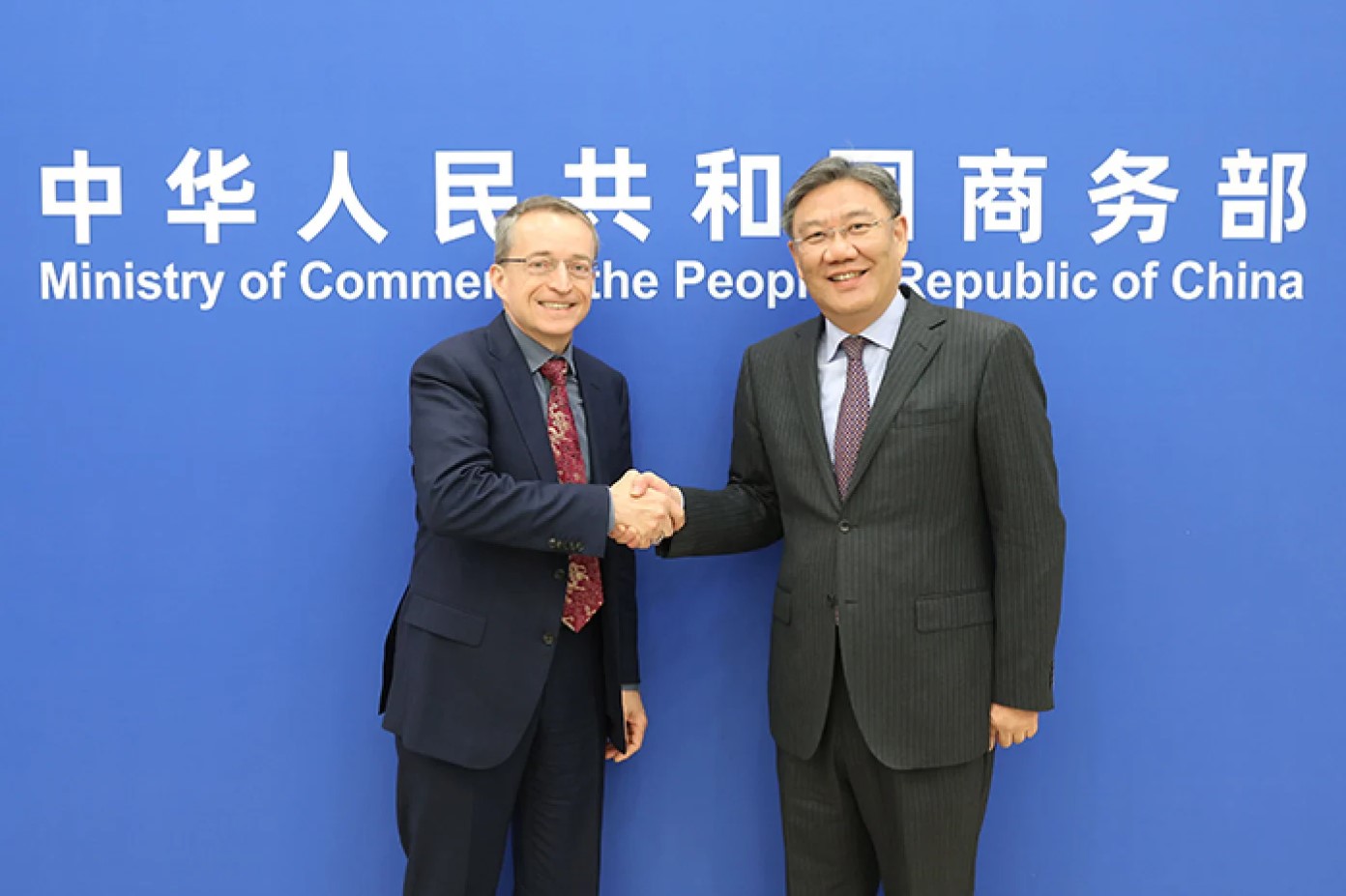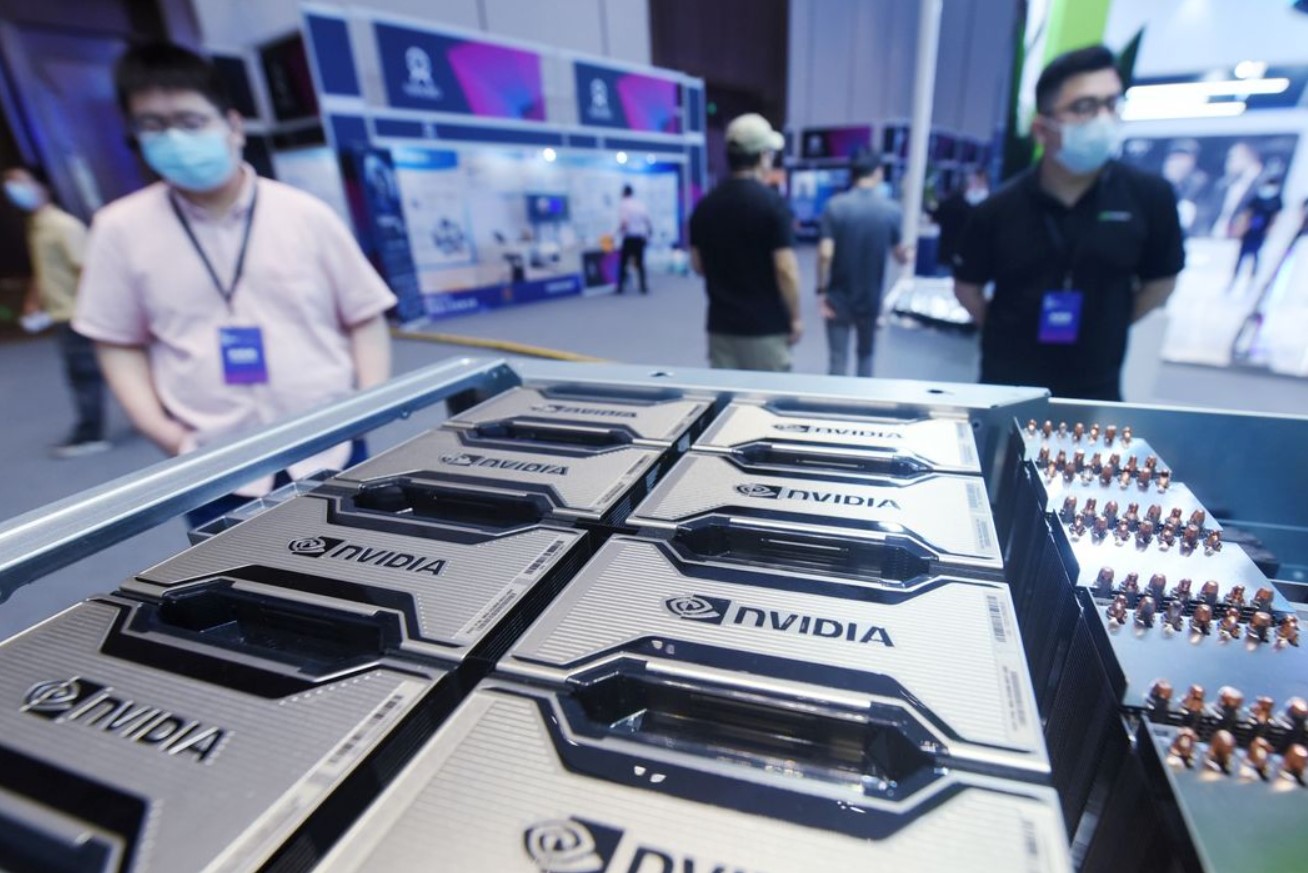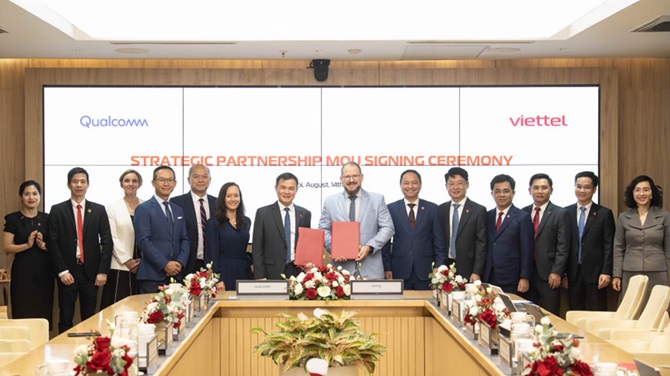America’s biggest semiconductor companies are embarking on a last-ditch effort to overcome new restrictions on sales to China, with CEOs traveling to Washington next week to meet with administration officials and U.S. lawmakers.
The CEOs of Intel, Qualcomm, Nvidia and other semiconductor companies are planning to lobby against expanding restrictions on sales to China of certain chips and equipment for making semiconductors that the Biden administration is set to implement in the coming weeks, according to Reuters.
While they don’t want to block all action, the companies see an opportunity to convince President Biden’s team that an escalation would undermine the White House’s current diplomatic efforts to engage Chinese officials and forge a more productive relationship.

Intel CEO Patrick Gelsinger (left) shakes hands with Chinese Commerce Minister Wang Wentao during a meeting in Beijing on April 11, 2023. Photo: SCMP
Chip companies are at the center of an escalating conflict between Beijing and Washington. The United States, where much of the technology originates, believes that restricting China’s access to chips will strengthen its national security and stifle the Asian nation’s efforts to build up its military capabilities.
The meetings next week, which could include joint sessions between executives and US officials, come as Nvidia and other chip companies fear a permanent loss of revenue to an industry that has a large number of businesses in China as relations between Washington and Beijing become increasingly strained.
The goal of company executives is to ensure that government officials understand the potential impact of any further tightening of rules around what types of chips can be sold to China, Reuters reported.
Companies argue that being cut off from their largest market would hurt their ability to spend on technology development, ultimately undermining America's leadership role.
Qualcomm gets more than 60% of its revenue from China, supplying components to smartphone makers like Xiaomi. Intel counts China as its biggest market, accounting for about a quarter of its sales. For Nvidia, meanwhile, China accounts for about a fifth of its revenue.

The US has required companies, including Nvidia, to apply for licenses to sell their most advanced AI chips, such as the A100, to customers in China. Photo: WSJ
In October 2022, the US Commerce Department issued regulations that would ban semiconductor manufacturers from selling certain tools to China, as well as ban the export of certain chips used in artificial intelligence applications. The announcement sent shockwaves through the industry.
Chip equipment makers such as Applied Materials Inc. have been hit hardest so far, with billions of dollars in lost revenue. But the restrictions are also affecting a number of other equipment makers.
Nvidia's ability to ship its industry-leading artificial intelligence accelerators to China has been hampered by an approval process that is costing the company sales.
The US administration is planning to update and refine the controls that have already been announced. According to Bloomberg, the US is influencing foreign companies to further cut off China's access.
ASML Holding NV, one of the largest suppliers of chipmaking equipment, is facing tighter restrictions from the Dutch government and new restrictions from the United States, as some of its products are made in the United States.
Overall, the new US rules will also reflect the results of negotiations with Japan and the Netherlands .
Nguyen Tuyet (According to Reuters, Bloomberg)
Source












































































































Comment (0)